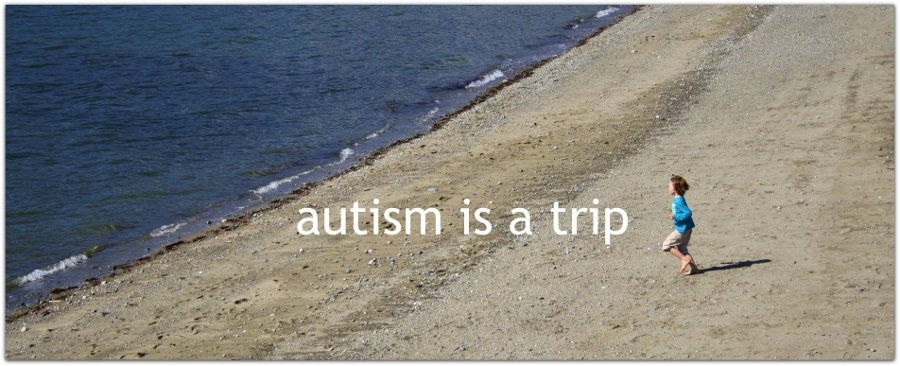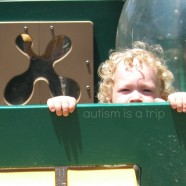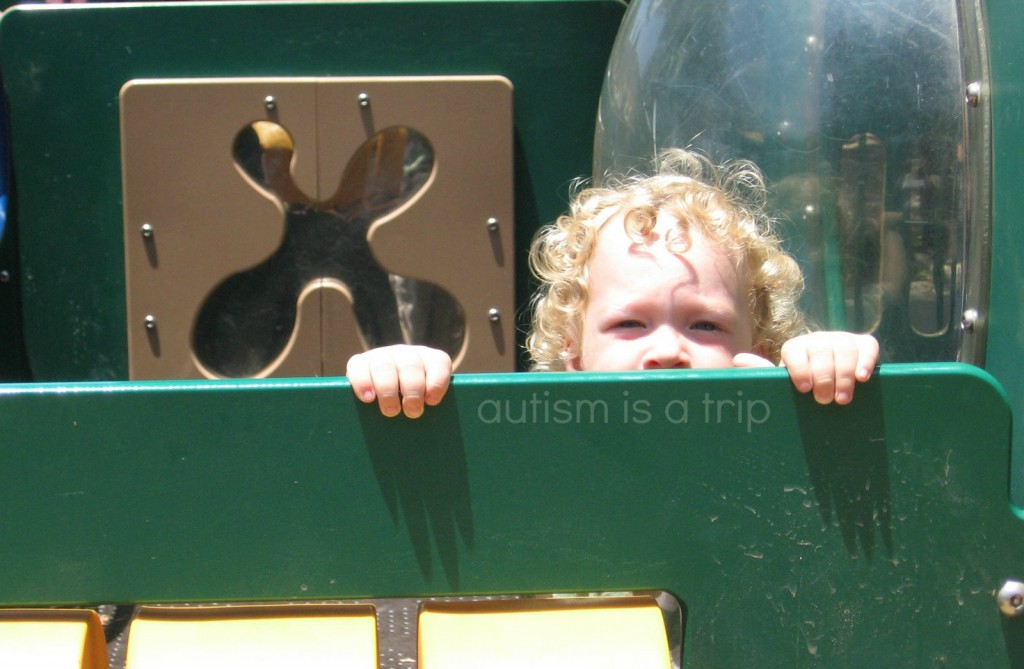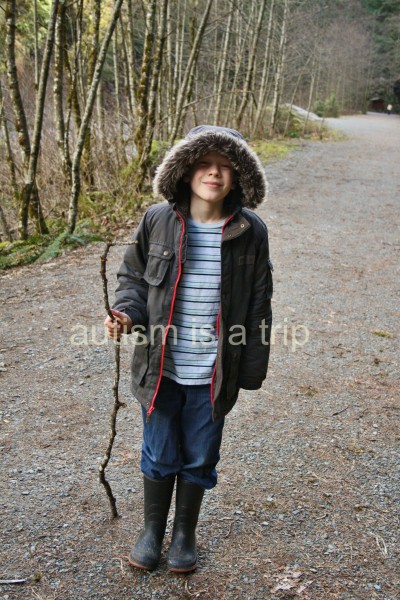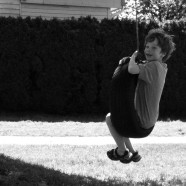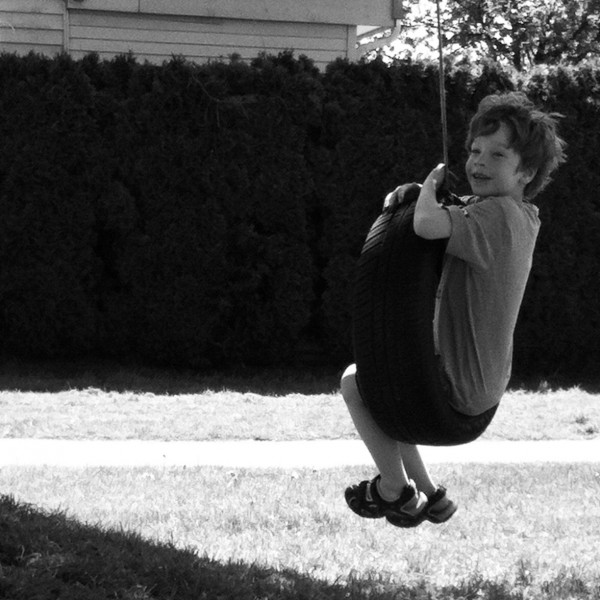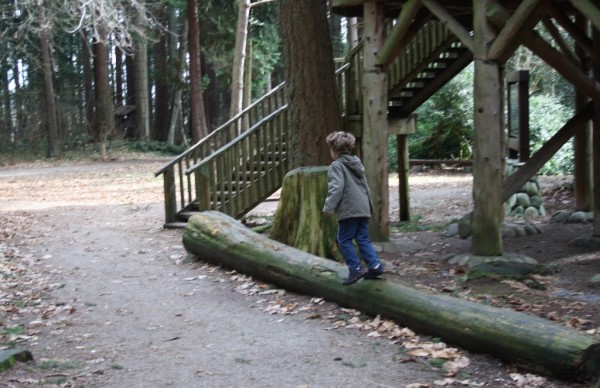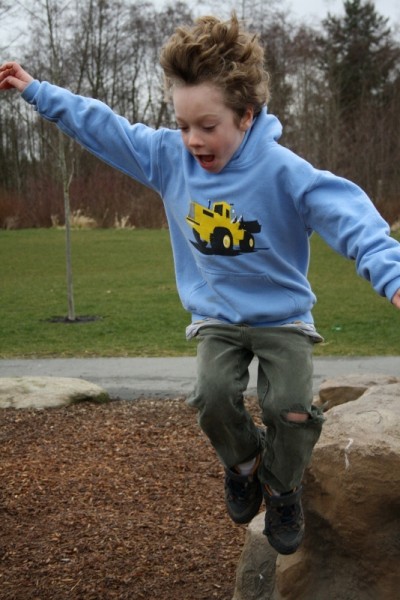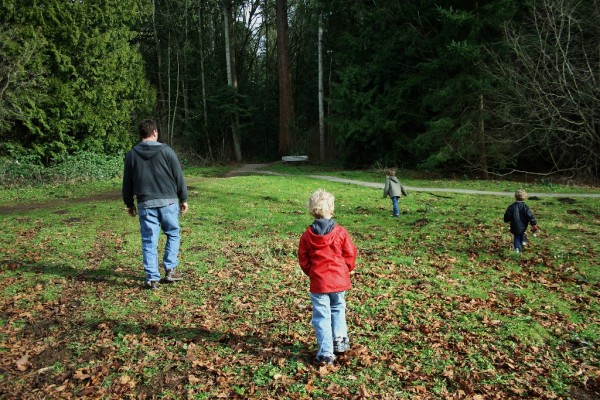Autism in British Columbia: Crisis in Process
My son Jack was born in the United States and raised in Los Angeles until the age of four and a half. Just before he turned two, he entered the California Early Start program for children with a risk of developmental delay or disability. We called for an appointment in August of 2o06, and by the end of September of the same year, he was enrolled in a variety of interventions and therapies.
At age three, he was formally assessed and diagnosed with autism by both the Lanterman Regional Center and the Los Angeles Unified School District (LAUSD). He was transferred to autism-specific supports, where he remained until we moved.
From the time Jack was twenty-two months until he was four and a half, Jack received the following interventions and therapies:
AGE TWO
- Collaborative preschool with typical peers in a clinic-based classroom, three-to-four days a week
- Two hours a week of clinic-based Occupational Therapy
- Two hours a week of home-based Speech Therapy
- Several sessions of Feeding Therapy
- He was also offered full-time preschool, additional Occupational Therapy, Floortime Therapy, and Respite Care, which we did not feel were necessary at the time.
AGE THREE to FOUR
Provided by LAUSD:
- Individualized Education Program (IEP) support
- Collaborative preschool with typical peers in a public school classroom, five days a week
- Full-time Behavioural Intervention Implementation (BII) aide at school
- Two half-hours a week of school-based Speech Therapy
- Two half-hours a week of school-based Occupational Therapy
Provided by Lanterman Regional Centre:
- One hour a week of clinic-based Occupational Therapy
- Twelve hours a week of home-based Applied Behaviour Analysis (ABA)
- Respite Care
- Parent training workshops
We also supplemented his therapies at home, with strategies learned from his providers.
Several of the supports at school and at home were coordinated through the same non-profit organization, so there was continuity in both areas. We felt very confident that our son was receiving every support he needed, and that should he need more, the options were available to us.
We were given choices of providers and schedules, and the ability to change supports and therapies as we saw fit, but we were guided through the process by a social worker at Lanterman (Early Start), and then a caseworker at Lanterman, a support worker at LAUSD, and a coordinator at the non-profit who provided our BII and ABA aides.
It is important to note a couple of things. First, we never saw a bill. Not once. My husband and I signed authorization forms, reports, and time cards, but we were never financially responsible for anything.
Secondly, we were given suggestions and options as to what Jack needed, according to several observations and reports. We were able to give our input, but we were not responsible for creating his treatment plans. We never felt like the burden of figuring out what he required was on us.
Finally, we never saw a pediatrician or medical doctor (other than the diagnosing psychiatrists) for Jack’s autism. In fact, it came as a bit of a surprise to his pediatricians when we told them about his diagnosis. Jack has never had any of the health issues commonly associated with autism, and as it is not required in California, we had no reason to include his doctors in the diagnosing process.
When our family moved to Canada, Jack was in the process of transitioning from preschool to Kindergarten. In Los Angeles, he would have had full-time BII support, and continued with both speech therapy and home-based ABA (he had graduated from clinic-based occupational therapy) for as long as necessary.
I cannot speak to how his support would have waxed or waned over the school years, but I have only good things to say about our experiences up to that point.
I can, however, tell you what happens here in British Columbia.
Once we were settled, we were required to get Jack a new autism diagnosis from a Canadian doctor in order to qualify for provincial autism funding. Government funding is Canada’s answer to autism support, similar to the Regional Center system in California.
First, we had to see a pediatrician, and convince him Jack needed a referral for diagnosis. I was honestly shocked when he balked at giving it to us, even though Jack had already been formally diagnosed in the United States. Twice. The doctor wanted to rule out ADHD (which, it turns out, Jack does have), and Fragile X Syndrome (which he does not), before he would even consider referral. I pushed, though, and he relented.
Next came The Wait. We were told the wait time for assessment would be almost two years, and indeed it was fourteen months before he was seen.
Fourteen months is forever in the life of an autistic child and their family.
It can also be the difference between full- and no-support.
Children assessed with a spectrum disorder in BC under the age of six receive $22,000 a year of funding to pay for their various supports. The family is responsible for deciding which therapies and interventions are necessary, and all of the hows and whens and whos of making them happen. I know how overwhelmed we were in Los Angeles, and we had several agencies overseeing and coordinating everything for us.
Many families in BC are lost and confused as to what is necessary and when, and who to trust to give them good advice. They are expected to become autism experts overnight, and to know what their child needs at any given time.
Once a child on the spectrum reaches age six, the yearly funding drops to a mere $6,000. To cover every single thing the child or young adult needs.
$6,000 doesn’t go very far, in case you’re wondering.
Now consider the child who has been waitlisted until they are six or seven, eight, or older. Those children don’t get retroactive funding; they’re given the same $6,000 every other child over six gets.
$6,000 to sink or swim.
My husband and I often wonder where Jack would be in his development if he hadn’t had such intensive interventions and instead had to wait years to be seen. The difference between the two months it took in Los Angeles and the fourteen months it took in British Columbia is monumental.
It’s a lifetime.
In the first fourteen months of Jack’s therapies, he learned to use his upper body. He learned how to play.
He learned how to talk.
I cannot stress enough how important the first year of Jack’s interventions was in shaping the person he is today. That time was invaluable to him, and to us.
I have met many families of autistic individuals here in BC and have heard a lot of stories. Some wonderful, many concerning. Some downright terrible.
In the Lower Mainland, where we live, there is only one team that assesses and diagnoses autism. One team for a large and rapidly growing population – the fastest growing region in Canada.
Wait times to be seen are so outrageous, families who are financially able resort to paying for their own assessments out of pocket. Even those clinics now have tremendous wait times.
Yes, there are legitimate circumstances where a child may be older before he or she is diagnosed, but for families seeking help for younger children, the situation here can be bleak.
I cannot imagine where Jack would be today without the solid start he got at a very young age.
I cannot imagine the kind of support he would have gotten if we had to decide his plan of action alone, without professional guidance.
I cannot imagine the outcome if we had had serious budget restraints, or had to turn down therapies because we simply could not afford them.
Autistic children in Alberta get up to $60,000 a year for supports through age 18. Why should children in British Columbia not get the same?
Why do children over the age of six get so much less than younger children? Is autism less severe over the age of six?
Why are families left to fend for themselves in a province so well known for caring for its citizens?
It breaks my heart to see even one child go without the therapy and intervention he or she desperately needs. I don’t understand how a province can willingly stifle the potential of certain individuals because of their age or where they live.
It’s just not right.
It’s not Canadian.
It needs to change.
Share this: Twitter | StumbleUpon | Facebook | digg | reddit | eMail Read MoreVindication… and Obligation
It’s over. Our long journey for a Canadian autism diagnosis has ended, and we are victorious.
So why am I so tired?
We went to our family diagnosis and funding meeting this week, girding ourselves for any outcome. I wasn’t hiding my nerves well, so the wonderful doctor let us off the hook immediately. Jack is on the spectrum, he has ASD. We knew that, but there were no guarantees the team would agree. Thankfully, they did, and now Jack is eligible for all the support that Canada and the British Columbian government have to offer.*
After she presented the official diagnosis, we met with a case worker who explained the funding process, and where to go now. Unlike in California, where either the school district or the regional centers handled coordination of services, we will make most of the decisions ourselves. It’s a bit confusing, but I’m glad we have a lot of experience in the autism world to guide us.
We sat in the car afterward, letting it all sink in. I felt relief, I felt happiness… and I felt a weight bearing down on me. My husband and I looked at each other. We were both thinking the same thing.
Jack is special. Jack has always gotten exactly what he’s needed, and then some. But other children are special, too. Our monumental task is over, but our – my – biggest job is just beginning.
Since Jack was diagnosed, before even, he has had the full support of everyone charged with his care. We call him the “poster child for early intervention”, and it really is quite true. Every step of the way, he’s had exactly the therapy he’s needed, the support he’s required, and the attention he’s deserved. Here in BC, where his school has not yet received a penny for his support during the year and a half we’ve waited for his diagnosis, Jack has had a full-time special education assistant (SEA).** Even though we have occasionally had to wait, Jack still prevails in the end.
I know many, many families in the autism community, and their stories are all different. There are children who are lower functioning, there are children who are high functioning. There are children with asperger’s, and children with PDD. The spectrum is wide, and so are the services they’re receiving. I would love to say every child is getting exactly what they need, but that simply isn’t true.
I know children who are not supported in school, and children who have had to leave school because of it. I know children who need speech therapy or occupational therapy or sensory integration therapy, but linger on waitlists or are simply denied due to lack of funding. I know children who have waited years for an accurate diagnosis, without which they cannot even get on those waitlists.
I won’t say we’ve had an embarrassment of riches when it comes to Jack’s therapies, interventions and supports, as he’s needed and deserved every one. But that feeling lingers when I speak with parents so desperate for even a fraction of what we’ve had. It pulls at my heart and puts a fire in my gut.
The weight I feel is obligation. I cannot allow my fight to end with Jack. He is my child and it’s my duty to advocate for him, but someone needs to stand up and speak for those who are not as fortunate, for whatever reason. Autism is many things: daunting, confusing, challenging, and oftentimes inspiring. What autism need never be, though, is a tragedy. Every single child and individual on the spectrum deserves the chance to be the best they can possibly be, through therapies, interventions, supports, or whatever it takes. Every family touched by autism deserves to know they’re not alone on their journey.
Jack and I have completed this leg in our marathon, and we have every intention of winning the whole thing. We also intend to take as many with us as we are able. We can, and we will.
“You gain strength, courage and confidence by every experience in which you really stop to look fear in the face. You are able to say to yourself, ‘I have lived through this horror. I can take the next thing that comes along.’ You must do the thing you think you cannot do.”
― Eleanor Roosevelt,
**************************************
*Which isn’t a whole lot, honestly, but that’s another topic for another post.
**I was quite pleased to take in his diagnosis paperwork yesterday, which will now entitle his school to $18,000 a year specifically for his support.
Share this: Twitter | StumbleUpon | Facebook | digg | reddit | eMail Read More
A Follow-Up…
I’ve had a lot of responses to yesterday’s post about Jack’s “new” diagnosis, and I’ve been thinking about what it is that’s bothering me the most. A comment this morning hit it on the head:
“It sounds like your son has adapted to may things and so those who tested him determined his diagnosed could be ‘updated’. I think the autistic traits remain, the kiddos just learn to blend in to what is expected of them socially, etc.”
I read this and it struck me. I’m afraid, because, in my mind, Jack hasn’t evolved out of autism. I believe he’s every bit as autistic as the day he was diagnosed, he’s just older.
Jack is a brilliant product of Early Intervention, which means we threw all kinds of therapies at him as quickly as possible. And you know what? They worked. But he still has autism, and that means several things.
It means that while he keeps up with his peers in school in terms of schoolwork, he simply cannot function in a school setting without constant supervision (he has a full-time SEA). His teacher is out for the rest of the school year due to surgery, and I fully expect Jack to backslide until he gets used to the change.
Jack is easily overwhelmed by stimuli, and we have to plan our lives around that. We rarely do things after school, as he needs that time to decompress from his day. There are many places we cannot go, because of various things that bother/irritate/terrify him (like the buzzers at the hockey rink adjacent to the indoor playground).
He is hyper verbal, to the point that he thinks every conversation is directed at him, and if he has something to say, he will do anything, including screaming at the top of his lungs, until he gets the floor. We’ve recently realized that giving him simple math problems will buy us enough time to finish our quick discussion about what to get at the store.
Jack has to be constantly engaged at home or he gets restless. This can mean anything from doing laps of the house to throwing his brothers down the stairs for sport. His aggression has increased with his age, and in a house full of boys, that’s a scary prospect.
Jack does not understand social boundaries. He will hug and touch complete strangers, and not grasp why it’s wrong. This particular behavior really scares me.
I honestly don’t believe Jack is “out of autism”. I think he’s smarter than the ADOS. I think he had a “good” day for his assessment. I can tell you if they had assessed him based on his behavior on the way home, there would have been no question.
I identify with autism because I am an autism mom. Yes, my child is high functioning, but he still has autism. Every day brings a new challenge, and every day is exhausting. Jack and I both need the services he’s getting, and then some. I’ve been waiting patiently for a year and a half to re-start his home-based ABA therapy, and the prospect of never getting it wrenches my stomach.
I realize now I’m clinging to the autism label as a lifeline, because that’s what it is. I know my child responds to therapies, that part is obvious. The prospect of facing a future without support, though, terrifies me.
I feel exactly the same way I did when Jack was initially diagnosed, except now there’s an additional layer of panic. I cannot let autism be taken away from us. I just can’t.
Share this: Twitter | StumbleUpon | Facebook | digg | reddit | eMail Read MoreAutism by Any Other Name…
What’s in a label? I mean, really? I know the whole “a rose by any other name…” spiel, but I also know that sometimes labels are there for a reason. Sometimes the label helps you to understand what’s inside the package a little better.
It’s been four and a half years since we first had Jack assessed by Early Intervention in Los Angeles and we took the first steps on this journey of a lifetime together. It’s been three and a half years since he was formally diagnosed with autism spectrum disorder, autism or ASD for short.
At the time, I had mixed feelings about my child being “labeled”. I knew that with a formal diagnosis of autism the doors of opportunity would magically open for Jack, and he would be supported both at school and socially, at least through early adulthood. I also knew that for some people in his life, a label served to “explain” Jack a little bit, and made it easier to understand him.
On the flip side, labeling a child for life can be a harsh thing. Jack will forever carry a stamp on his forehead, or so I thought at the time, that will cause people to judge my child before he has a chance to show his true self. This reality shattered me and broke me to my very core. No parent wants their child to suffer, especially for something he can’t change.
I had no idea how we, he, would reconcile these two very different aspects of the one little word, autism.
What I, we, discovered, is a whole new world just waiting for us with open arms. People who helped us see the beauty in the chaos, the light in the sometimes profound darkness. Therapists, teachers, professionals, parent, people who have been walking the same path for a while, and those who have just begun. People who understood the strangeness that is our reality now, and don’t think it’s actually that strange. People who cheer things others take for granted. People who laugh with us at the absurdity of it all. We found community.
Launching this site definitely helped me. I started it with the intention of sharing my deliriously funny child with the world, and got so very much more in return. The inkling of an idea I had in the beginning was reinforced in spades: autism is a gift. For Jack, for me, for our family.
So, four and a half years on, we are at peace. Autism is still quite often a daily struggle, but it’s also an integral part of our family. There are so many experiences and people and perspectives we might never have been exposed to had autism never entered our lives. I have said it many times before, and I will say it again now: I will go to the ends of the earth to alleviate the things about autism that are painful, hard and stressful for Jack, but I will not wish for him to be “normal”. Jack is the person he is because of autism, and he is beautiful.
We are at peace. Well, we were. Not now.
We moved to Canada a year and a half ago, and we love it here. The children are happy, mama and daddy are happy, the family is happy. It was a good move.
When we got here, Jack was immediately taken in by his new school, and once they assessed his situation, he was given full support. He transferred to the school near our home this year (he had been on the wait list), and they welcomed him with open arms and a full-time SEA (special education assistant). He is in the grade one French Immersion program and doing really well. He’s had no support outside of school, though, because that requires funding from the British Columbia provincial government. In order to get that, Jack needed to be diagnosed again by a Canadian doctor. Not a problem, we thought, the only issue is a possible year-long wait list.
We had no idea the wait would be the least of our problems.
The clinic in our area that does the autism assessments contacted us a couple of weeks ago and I began a conversation with a wonderful caseworker. She requested copies of many of Jack’s reports, IEP’s, etc., so I started scanning and emailing forms. I think I sent well over a hundred pages out of my four-inch-thick “big book of Jack”, which includes every report, letter, IEP and piece of paper concerning autism that I’ve collected since we started all of this back in August of 2007.
In the interim, I was hearing horror stories from other local parents about how their children had been misdiagnosed with ADHD or not diagnosed at all for years. Parents who finally, in desperation, paid thousands of dollars out of pocket to hire private clinics to take a closer look at their child and give a more accurate diagnosis.
I was nervous, but held firm to the belief that we’d be fine. After all, Jack was formally diagnosed by not just one, but two doctors, completely independent of one another. He has had years of occupational therapy and speech therapy, spent three years in collaborative preschools with special education teachers, had a year of in-home ABA therapy, and has always had a full-time support person in school (Behavioral Interventionist in the US, SEA in Canada). He has been supported by the Lanterman Regional Center, Working With Autism (for both BI and ABA support), several independent occupational therapy centers, and the Los Angeles United School District (LAUSD). No less than 22 full-time professionals in the last four years have worked with and for Jack.
Every one of these people have and continue to support Jack (including several in Los Angeles, who I consider to be his “team”, and I consult before any big decisions, like putting him into French Immersion). My husband and I have worked hard. Jack has, and does work hard. It’s an ongoing job, and it’s paying off.
Evidently, too well.
The wonderful woman I was in contact with at the clinic here in BC thought of us when a cancellation came up last week, and we scrambled and made the appointment, mere hours after she called. It was a simple assessment, just another ADOS. Jack didn’t have school that day due to a teachers’ strike, and he was excited to go play games and work puzzles. He was engaged.
The doctor’s verdict shouldn’t have shocked me, but it did. She said he “barely met her parameters” for autism, and she was more inclined toward PDD. My heart sank, tears welled in my eyes.
In California, as with many of the United States, PDD does not count as “real” autism. Close, but no cigar.
All I could think was that all the years of hard work led us to this. There is no cure for autism, but I guess if you’re close enough to “pass”, you can fall off the spectrum and get shut out of the community.
Both the doctor and caseworker were very quick to assure me that in Canada, PDD and ASD are treated the same. They both receive the same funding and the same designation from the government. There was still some discussion as to whether they would push for a speech evaluation and more thorough psych exam, but for the moment at least, I was assuaged.
I slept on it for a few days, and became less so. I realized that I was not, in fact ok with this new diagnosis. I am very far from ok with it. My child has autism, not PDD. I know this. Everyone who knows Jack knows this. How can all of the people who have worked so closely with him for so long be wrong? I thought of all the things I didn’t mention in my part of the interview, all the obstacles he’s overcome, all of the “bad” things we’ve dealt with. I wondered if perhaps I had gotten too cocky and Jack had had too “good” a day. A perfect storm of neurotypicality, if you will.
After a sleepless night hashing it over in my mind, I sent the caseworker an email asking, politely, that they pursue the additional assessments. I explained that I understand their position, but in my mind, autism just doesn’t disappear. I don’t know how much influence I had in the decision, but within a day I got the call that they would, in fact, be going ahead with the evaluations.
I felt some relief, yet a nagging voice in my brain just wouldn’t quit. “I’m not ok,” it said. “I need it to be autism.”
Why? Why am I so afraid of losing autism? Why am I afraid of losing what is essentially just a label? Jack will still be the same person he’s always been, whether his file says “autism” or “PDD” or “purple-winged boogie monster”. He will still be my hilarious, socially-challenged but eternally endearing, beautiful boy. Jack will not change without autism.
Or will he? In my mind, he, we, will lose identity. Community. Future. When Jack was first diagnosed, I took a deep breath and told myself “here we go, this is his/our life now”. I never dreamed that would change. Sure, I expected and hoped for him to adapt and learn and in some ways acclimate, but I never thought for a second the autism would go away. That just doesn’t happen.
And there it was. I need autism now. It’s a part of me. It’s who Jack is, it’s who I am as Jack’s mama, it’s who we are as a family. Autism joined our family the same day Jack did, and it’ll be with us just as long.
And I suppose if the official diagnosis stands at PDD, not much will change. Life as we know it will roll on, and Jack will continue to be hilarious and socially-challenged and endearing. And I will stubbornly cling to the name of this website.
In the end, it’s just another stop on our journey together. Autism really is a trip.
*************************************************
**UPDATE**
I had a few more thoughts on this, so make sure you read the follow-up here.
Share this: Twitter | StumbleUpon | Facebook | digg | reddit | eMail Read More